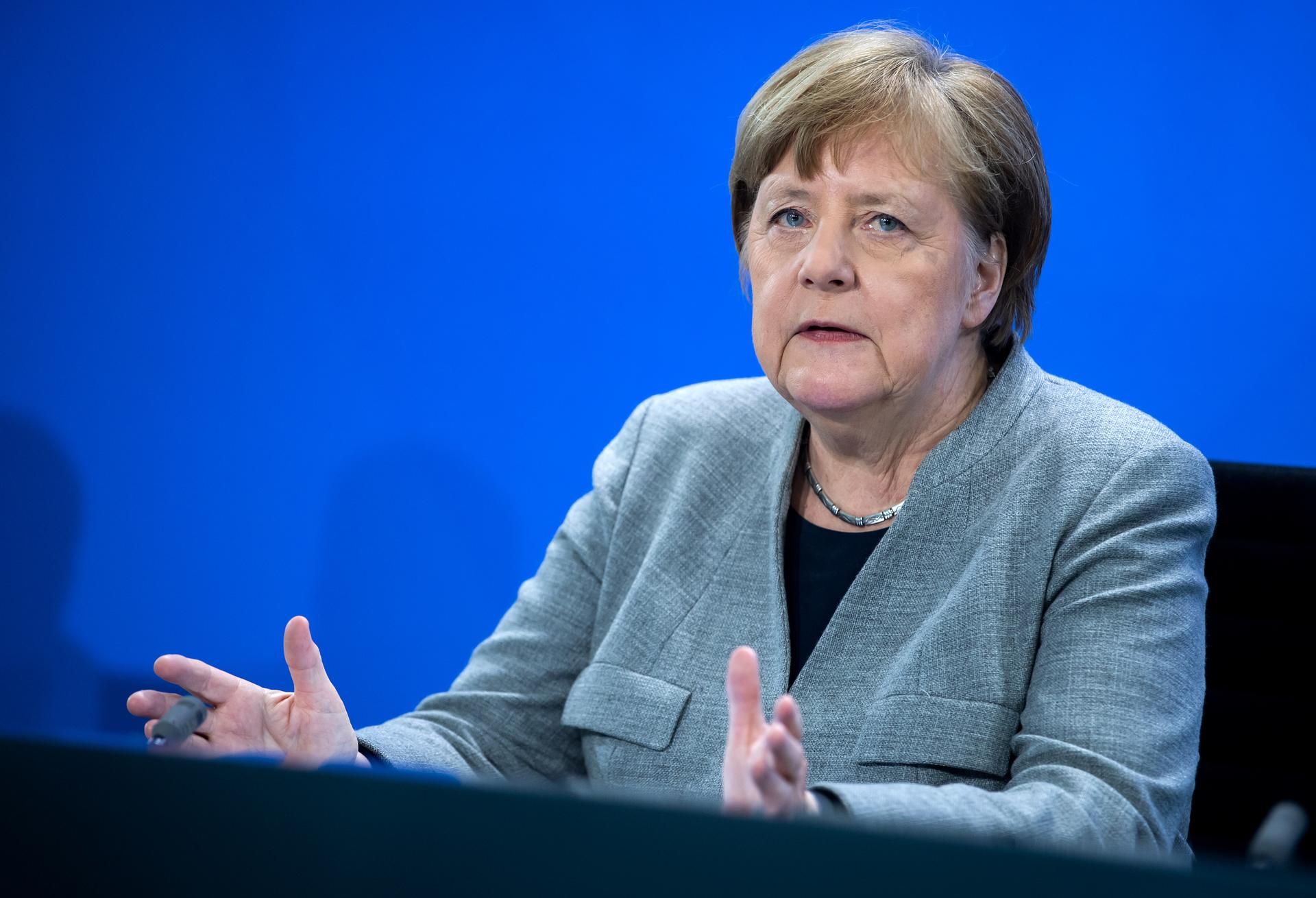BERLIN -- Germany has achieved a “fragile intermediate success” in its the fight against the coronavirus and will take small steps out of lockdown with the partial reopening of shops next week and schools from May 4, Chancellor Angela Merkel said on Wednesday.
Social distancing rules would remain in place until May 3 under the measures that Merkel and the governors of Germany’s 16 states agreed at Wednesday’s meeting. They plan to meet again on April 30 to review how to proceed after May 3.
Under Wednesday’s agreement, retailers whose shops are up to 800 square metres will be allowed to open next week, along with car and bicycle dealers, and bookstores, though they must practise strict social distancing and hygiene rules.
Schools would start opening from May 4, with priority given to final-year students. Hairdressers could also reopen then.
The federal and state governments “strongly recommended” Germans wear face masks on public transport and when shopping.
Religious gatherings will remain banned and restaurants, bars, cafes, cinemas and music venues shut, with big events banned until Aug. 31.
“We are now moving forward in small steps,” Merkel told a news conference. “It is a fragile situation in which caution is required, not exuberance.”
In a document outlining their agreement, the federal and state leaders said they would support voluntary use of a contact tracing App, when available, so people can quickly learn when they have had been exposed to an infected person.
They backed a European initiative called Pan-European Privacy Preserving Proximity Tracing (PEPP-PT).
Germany’s confirmed coronavirus cases have risen by 2,486 to 127,584, the Robert Koch Institute (RKI) for infectious diseases said, with a reported death toll of 3,254 people.
Merkel’s Cabinet had already decided to extend border controls to Austria, Switzerland, France, Luxembourg and Denmark by 20 days to early May, an Interior Ministry spokesman said.
‘Little leeway’
Merkel said the virus reproduction or transmission rate in Germany was around 1 - meaning one person with the virus infects one other on average.
With a transmission rate of 1.1, Germany’s healthcare system would hit its limits in October, she said. With a rate of 1.2, it would hit the limit in July, and in June with a rate of 1.3.
“So you see what little leeway we have,” Merkel added.
Companies and politicians are worried about the economic impact of a long shutdown, although the government has tried to cushion the blow with a range of measures, including a 750 billion-euro ($818.78 billion) stimulus package.
“We are in a new normal that will not be short but will be with us for some time, until we have managed to develop better medicines and vaccines to prevent the spread of the pandemic,” said Finance Minister Olaf Scholz.
The Economy Ministry said Germany entered a recession in March and the slowdown is likely to continue until the middle of the year.
“Collapsing global demand, interruption of supply chains, changes in consumer behaviour and uncertainty among investors are having massive impact on Germany,” it said.
It said even if social distancing measures were eased, economic activity would continue to be very subdued and would only pick up gradually.
Some 725,000 companies in Germany had applied for short-time work by April 13, the Labour Office said on Wednesday, a roughly 12% rise from the previous week.
Short-time work is a form of state aid that allows employers to switch employees to shorter working hours during an economic downturn to keep them on the payroll. It has been widely used by industry, including Germany’s car sector.

















































